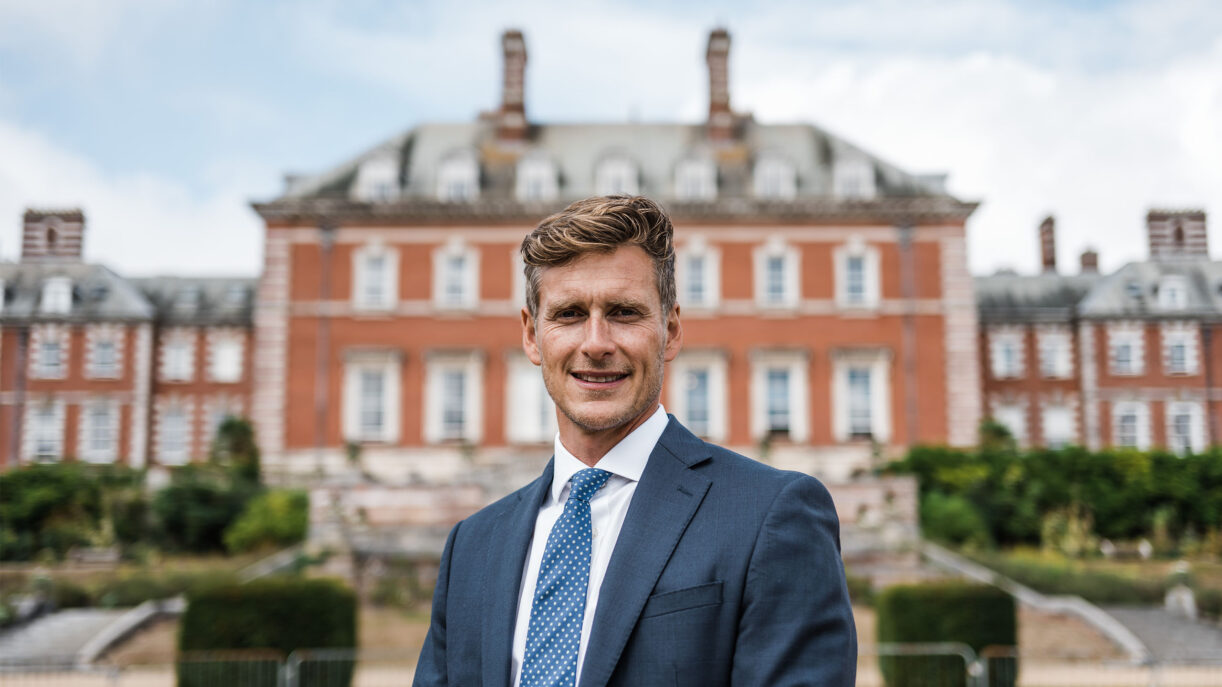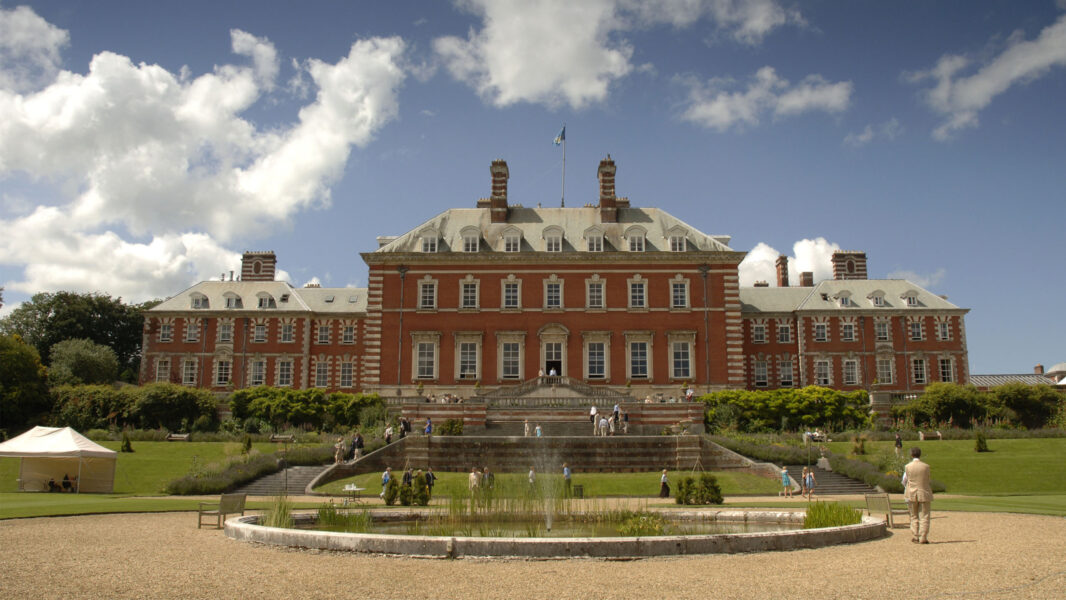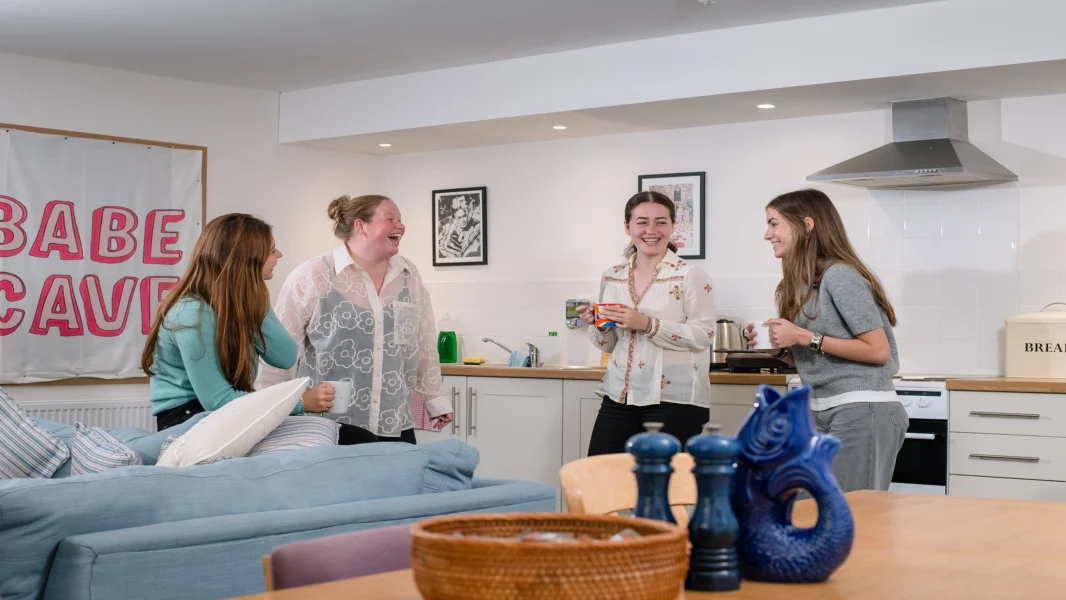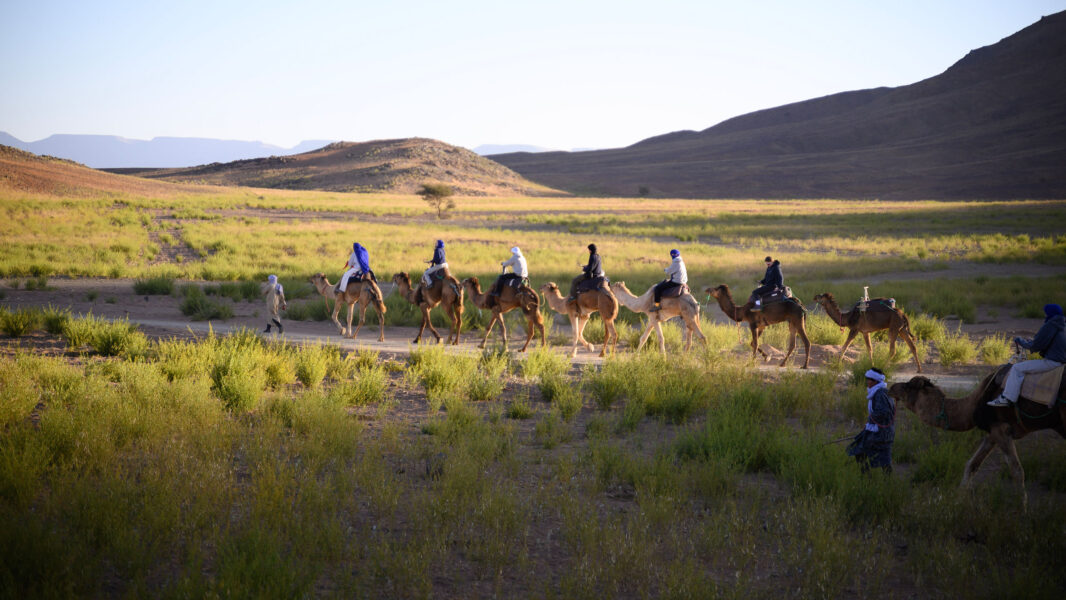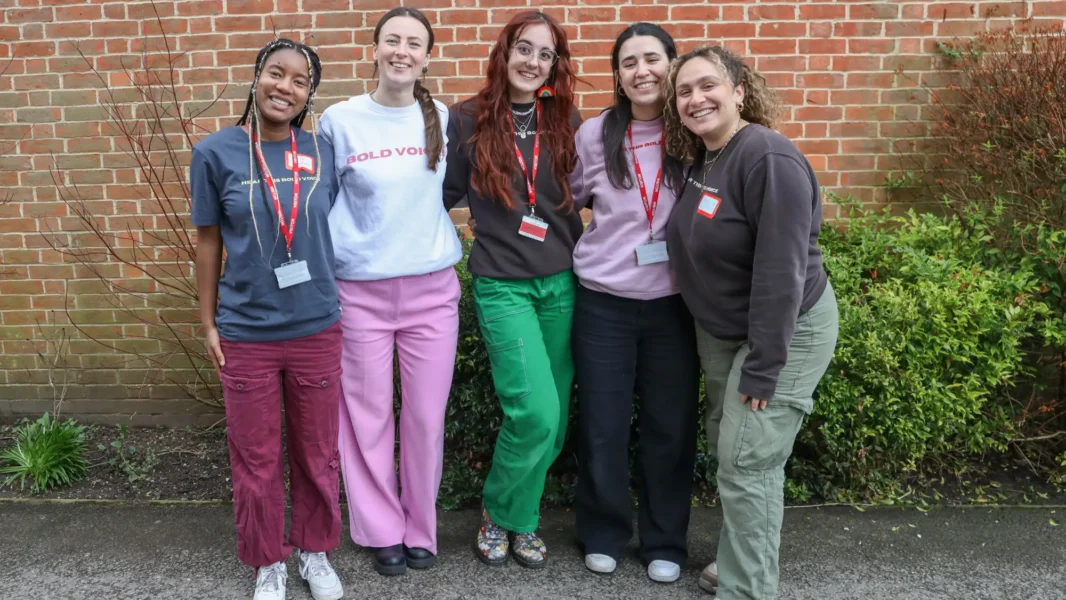Before you started your career in education, you ran a company hiring out camper vans to backpackers going around Europe. What prompted the change of direction?
After returning from Europe, I found myself at a crossroads, unsure of the next step in my career. I knew I wanted to do something meaningful and fulfilling, but I wasn’t sure what that would be. My best friend had joined the Teach First programme and was really enjoying his experience. Intrigued, I decided to spend a week shadowing him at a secondary school in London to see if teaching might be a good fit for me. That experience turned out to be transformative. I was captivated by the energy of the classroom, the interactions with young people and the opportunity to make a real difference. Keen to pursue this path, I researched different training routes and chose the Graduate Teacher Programme (GTP) in Secondary Education & Teaching at the University of Southampton. Later I completed a Masters in Educational Leadership at the University of Buckingham. Teaching has been incredibly rewarding and having my sister in the same profession is great, as we can exchange ideas and support one another.
The independent sector is facing some unprecedented national challenges with the introduction of VAT to fees, national insurance increases, changes to business rates relief. Addressing these issues locally takes time and effort. Do you sense that traditional heads’ duties have suffered as a result?
The role of a head has evolved rather than suffered. Today, a head has a much larger portfolio of responsibilities, requiring them to oversee an extensive organisation rather than being solely focused on daily school operations. As a result, having a strong and capable educational team in place is crucial, as they take on much of the hands-on school management. While heads used to be more involved in the day-to-day aspects of school life, we are now required to step back, delegate and trust our teams. The shift can be seen as a positive development, encouraging a culture of collaboration and efficiency. Additionally, heads now face greater commercial responsibility, as schools increasingly become more commercial and operate like businesses. This diversification of the business model places additional pressures on leadership but also opens opportunities for innovation, resource management and long-term sustainable education models. The role continues to evolve so we must be adaptable and strategic in our thinking.
Bryanston was founded in 1928 by a young Australian schoolmaster, J G Jeffreys, who has been described as a ‘natural innovator’ and one ‘who respected good traditions’, a sentiment reflected by the school motto – et nova et vetera (the best of both new and old). Can you give an example of how this holds true at the school today?
At Bryanston, we take immense pride in preserving the fundamental ethos that has defined our school for close to a hundred years. The Bryanston Method, which is rooted in the principles of the Dalton Plan, places a strong emphasis on individualised learning, creativity and personal development. Our unique tutor system ensures every pupil receives one-to-one personal guidance and support throughout their time at the school. Timetabled assignment periods around specialist study rooms, with subject teachers on hand, encourages independent thinking and self-motivation, developing essential life skills and preparing pupils for the challenges in the wider world. Whilst the Bryanston Method remains at the core of our educational practice we continue to evolve, embracing innovation to meet the needs of a rapidly changing society. By integrating modern teaching methodologies, technology and interdisciplinary learning, we create an educational environment where pupils thrive intellectually and socially. This balance of tradition (vetera) and forward-thinking (nova) ensures that Bryanston remains a leader in progressive education.
The school was one of the earliest schools in England to adopt the Dalton Plan. Developed by Helen Pankhurst in America at the start of the 20th century it aimed to achieve a balance between a child’s talent and the needs of the community. What does the plan look like in practice now?
The Dalton Plan at Bryanston focuses on independence by allowing pupils to manage their time effectively. From Year 9 onwards, pupils have dedicated assignment periods where they work independently, plan their schedules, and take responsibility for their academic progress. This personalised approach encourages self-discipline, maturity, and preparation for life beyond school. A key element of this is the balance between teaching and independent learning, which is crucial for individual success. Bryanston supports this through an online weekly assessment chart, enabling pupils to track their progress and develop self-directed learning skills both in and out of the classroom. By the time they reach Sixth Form, pupils spend a significant amount of time outside the classroom in small sessions with teachers, known as CPs (Correction Periods), evaluating and discussing pieces of work in greater depth. This focus on individualised feedback and self-guided learning remains at the core of Bryanston’s approach today, ensuring that our pupils develop the skills necessary for academic and personal success.
Alongside the Dalton Plan is the Bryanston Method, which includes a tutorial system that features one-to-one tutors that are matched to students based on shared interests. What have been the overriding benefits of taking this approach? Do you tutor as well?
Bryanston’s core strength lies in our tutorial system, ensuring personalised academic and emotional support. The term “tutor” originates from Latin, meaning protection and guidance, roles our tutors fulfil beyond academics. Each pupil is carefully matched with a tutor before they join, building a lasting relationship throughout their time at the school. Tutors oversee both academic progress and personal development, not necessarily giving them all the answers but helping them to find them and navigate some challenges themselves. With intellectual and personal growth never following a fixed path, tutors play a vital role in supporting pupils through successes and setbacks. All tutors are teachers, trained in mentoring young minds. Weekly one-to-one sessions allow pupils to discuss studies, workload and aspirations, deepening trust over time. All pupils seek their tutor’s guidance for university applications and many for life decisions beyond. This close bond, often lasting beyond school years, is what makes Bryanston unique. Yes, I am a tutor too.
As part of Bryanston’s approach to mentoring you have also recently developed both sports and arts advisory boards, where old Bryanstonians have been appointed to offer guidance and advice in those areas. How do you measure their impact on pupils and staff?
The sports and arts advisory boards at Bryanston are in their early stages but have already proven to be an exciting addition to the school. These boards serve as think tanks, offering valuable insights and strategic guidance to staff members overseeing these areas. Their impact is measured through several key indicators. Firstly, we assess the development of sporting and artistic pathways, evaluating new partnerships and opportunities that emerge. Secondly, we will be tracking the number of pupils pursuing careers in sports and the arts after leaving Bryanston, providing a tangible measure of long-term influence. Additionally, feedback from staff and pupils on the advisory boards’ contributions will be crucial in assessing effectiveness. Over the coming years, we expect these boards to play a pivotal role in enhancing Bryanston’s reputation in both fields, ensuring that pupils receive the best possible support and direction in pursuing their passions. We are looking forward to announcing news on the appointment of boards for our other two core pillars – Entrepreneurship & Innovation, and the Digital World, in the coming months.
You have also developed a partnership with two Sports Advisory Board members which resulted in the school holding a summit last year focusing on the theme of helping girls and young women take advantage of some of the new opportunities available for women in sport. What were the practical outcomes of that event?
Rory McCann, our director of sport works closely with Mollie and Rosie Kmita, founders of the Powerhouse Project, which empowers women through sport. The project partners with major organisations like Nike, The FA, Right to Dream and the Global Institute of Sport. It creates opportunities that educate, elevate and enable our community to become leaders. Rosie and Mollie serve on our Sports Advisory Board and, following a successful 2024 summit, Bryanston and the Powerhouse Project are hosting another sport summit this month, focused on empowering girls and women through sport. Since the first summit, we have identified a group of Bryanston ‘Powerhouses’, girls who have taken leadership roles in this year’s event. Three senior pupils are taking the lead in wellbeing, business, and media. One pupil has been inspired to launch and host her own sports radio show, ‘In Her Shoes’ on the school’s BryRadio channel.
Bryanston’s staff undertake individual academic ‘correction periods’ with sixth-form pupils. These sound rather austere and draconian which is doubtless far from the reality. What do they encompass and how do they work?
Bryanston’s Correction Periods known as “CPs” are 35-minute weekly small group sessions where A Level, IB and CTEC pupils meet with teachers to discuss pieces of work. Unlike traditional classrooms, CPs teach self-criticism, self-reflection and the ability to articulate knowledge, reinforcing deeper understanding. These sessions address individual learning styles, allowing struggling pupils to receive support while those who are more advanced can explore topics beyond the curriculum. CPs create an environment where pupils take more ownership of their learning, promoting responsibility and independent thought. They also ensure genuine comprehension through dialogue with a subject teacher. The discussions encourage intellectual curiosity, personalised learning and deeper insights into subject topics, offering ideal preparation for university. I agree with you that the term ‘correction period’ is rather draconian and we have much discussion and debate about what to rename it. For now though, the term CP is well-known here as it’s been in place for many years.
Whilst the school is well known for its creative arts you say that creativity is ‘woven throughout the fabric of the school’. How?
The annual A3 festival, led entirely by our lower sixth year group, is a tangible example of creativity at Bryanston, full of colour and fun run over the course of a weekend. The spectacular festival features plays, music gigs, wonderful fashion, dance and film shows, and this year an amazing giant art installation in the Main Hall, featuring a giant jellyfish suspended from the ceiling! Every aspect of the weekend is dedicated to creativity and the arts, with the A3 year group taking responsibility for organising, producing, performing and entertaining the whole school.
Beyond the visible expressions of creativity at Bryanston, we place great emphasis on creative thinking. This philosophy is applied to everything we do, from our distinctive Bryanston Method and our teaching approach to our Entrepreneurship & Innovation initiative. Here, pupils are encouraged to think outside the box, explore new ideas, build resilience and embrace a ‘have a go’ mindset.
You are an advocate of developing skillsets as well as acquiring knowledge. Are these different from a teaching perspective?
Developing skillsets and acquiring knowledge are equally important in education. While knowledge provides the foundation, skills empower pupils to apply their understanding effectively. From a teaching perspective, these aspects are distinct but interconnected. Acquiring knowledge focuses on subject-specific content, whereas skill development enhances pupils’ ability to analyse and apply information independently. To develop both, we integrate Method classes into the Year 9 (D) curriculum, emphasising skill-building beyond traditional academics. These weekly sessions teach essential learning strategies, including essay writing, referencing, text summarisation, work planning and revision techniques. By equipping them with these tools, we encourage independent learning and adaptability which are critical for success across disciplines.
Moreover, our curriculum values creativity and innovation across all subjects, placing emphasis on skills like imagination, problem-solving, and critical thinking which are as vital in Maths and Science as they are in Art and Music. In Entrepreneurship & Innovation, the emphasis is on building the skills for employment and life beyond Bryanston. Pupils are encouraged to explore new ideas and ventures and build resilience in preparation for the working world.
As a busy head, getting the work-life balance right must be hard. What do you like to do to relax after a full day at school?
It’s important for me to maintain a healthy work-life balance. Taking time to focus on personal wellbeing sets a positive tone for the rest of my day, so I tend to exercise first thing in the morning before my workday begins. Going to the gym or going on a run with our dog helps me to be more productive and have a more positive mindset throughout the day. I also have two young boys, so balancing work and personal life can be a challenge but equally can offer a good distraction from work, forcing me to switch off. We are lucky enough to live on the amazing 400-acre Bryanston estate, so there’s lots of opportunities to enjoy the wonderful facilities, such as the sports centre, and make the most of the natural surroundings, whether that’s running along the river path, playing football with the boys on the pitches or walking through the woods. Spending time with my family helps me to relax and keep things in perspective.
Fact file
Born: 26 July 1984
Married: Yes
Children: 2 boys
Schools and Universities attended: Arnold School (Blackpool), University of Nottingham
First Job: Jungle Gyms in Blackpool Tower
First job in independent education: Teacher of Economics, St John’s Leatherhead
Appointed to the current job: as head – April 2022 but joined the school in September 2020
Favourite piece of music: As a northerner I’m a big Oasis fan
Favourite food: Thai food
Favourite drink: Red wine
Favourite holiday destination: Caribbean
Favourite leisure pastime: Game of golf with a friend
Favourite TV or radio programme/series: The TV action-thriller series 24 starring Kiefer Sutherland as Jack Bauer, a counterterrorism agent
Suggested epitaph: “I have only slipped away into the next room”
This profile was featured in the March edition of Independent Schools Magazine.
